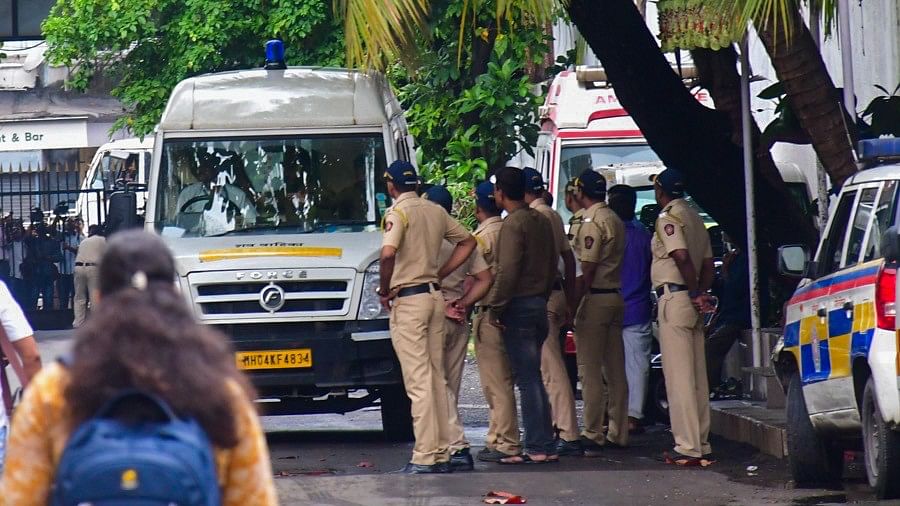
Body of Badlapur sexual assault case accused Akshay Shinde is brought to the JJ Hospital for postmortem in Mumbai.
Credit: PTI Photo
There is a very strong suspicion that the killing by the Maharashtra Police of Akshay Shinde, the prime accused in the case of the sexual assault on two minor girls in a school in Badlapur, Thane district, was a deliberate, faked encounter killing. The narrative reads like a textbook case of a fake encounter killing, and there are credible circumstances that point to it being so. The accused person was being taken from jail for investigations, he snatched a firearm from police personnel and provoked murderous retaliatory fire. Questions such as how a contractual sweeper who may not have touched a gun in his life would snatch one and how anyone in handcuffs would think of firing at the police and escaping from a running vehicle, would certainly be asked. The question why the police, who have dominance, fired to kill him, against protocol, would also be asked. These are legitimate questions.
There are strong reasons that go to confirm the suspicion. Maharashtra is due for Assembly elections in a few weeks. Given the circumstances of the killing of Akshay Shinde, no one can be blamed for suspecting that it was an electoral shot for gains for the state government. There is also the charge that the death of the accused would help the school management which has political connections. The rape of the two minor girls had created popular anger and triggered protests against the government. The killing of the accused man would be seen as instant justice and might benefit the ruling party. Shiv Sena leaders have welcomed the killing and have not cared to defend the flimsy police theory. The state government asks why the Opposition is questioning the killing when they wanted the accused man to be hanged. The BJP has asked whether the Opposition is a “balatkari bachao alliance”. Can a government and ruling party, which should uphold the rule of law, defend such a killing with strong suspicions writ large on it, without even a preliminary investigation?
The police have no right to take the law into their hands and enforce it through the gun. There cannot be any punishment without due process in a society governed by the Constitution and rule of law. The clamour for instant justice is a sign of breakdown of the justice system and the rule of law. The accused, even in the most heinous of cases, is entitled to a fair trial before punishment. We would be failing as human beings, citizens and as a society if we endorse the culture of instant justice. The Supreme Court has ordered suo moto investigation in such cases in the past. The Thane case deserves a court-directed investigation. The police is, on the face of it, guilty until proved innocent.